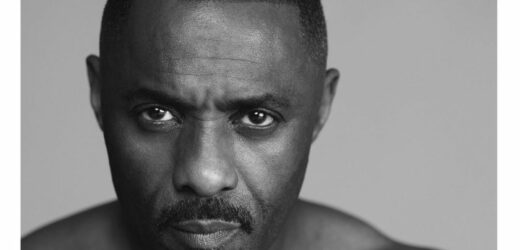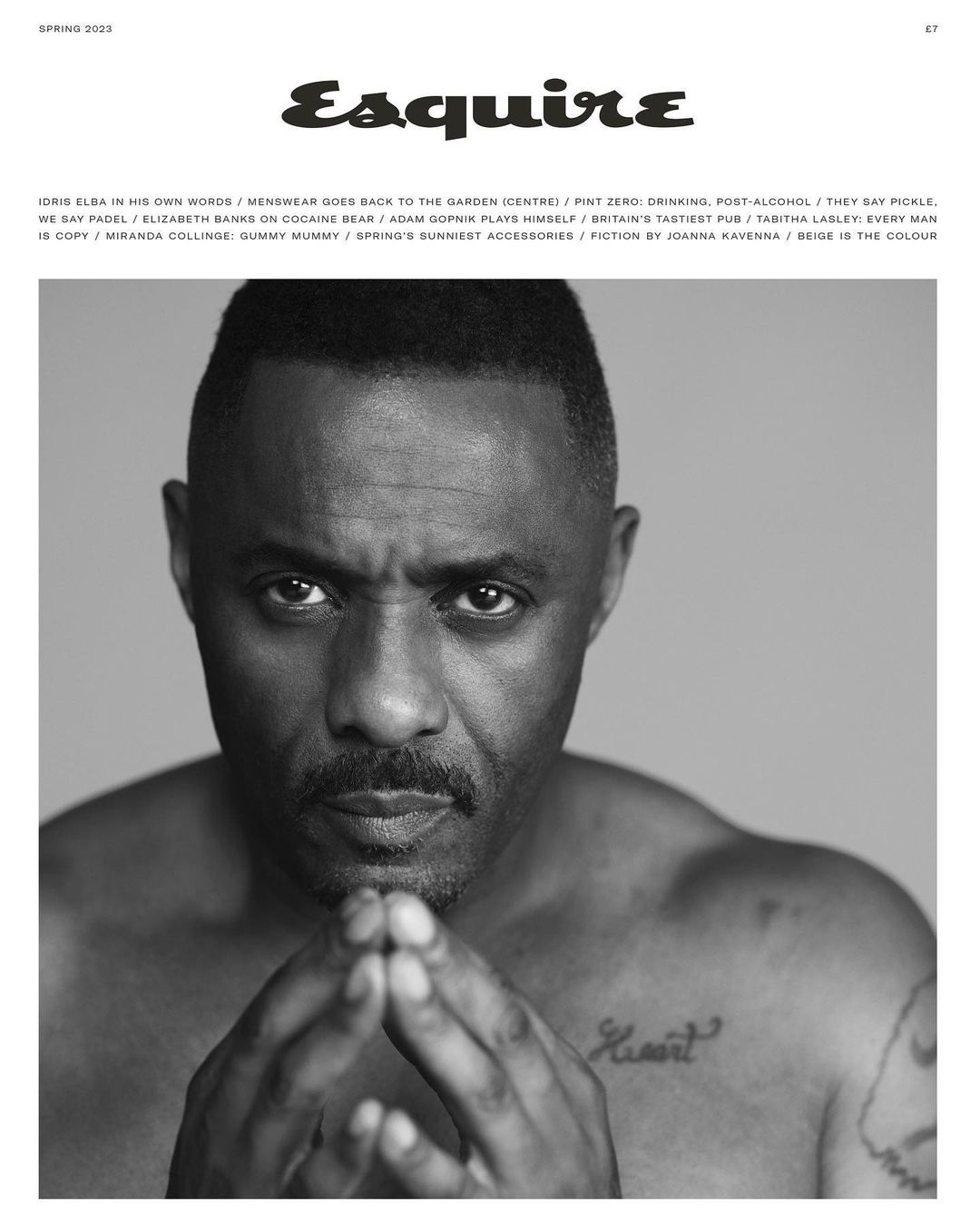When this first came out, I saw the big headline from Idris Elba’s Esquire interview and I was like “ugh, do I even want to cover this?” It took me a while to sit down and read the whole thing and remember why I like Idris so much. Everything he says in this piece has a particular context- he’s the only child of African immigrants, he’s experienced profound racism in the UK, he found better work in America, but he still returned to the UK to raise his kids. That’s the context for Idris saying that he doesn’t consider himself to be a “Black actor.” I get it, but I also get why people want to talk about it and argue about it. Some highlights from Esquire UK (he’s promoting Luther: The Fallen Sun, just FYI).
Turning 50: “Every day is my birthday. I didn’t make a big deal out of it. Physically I feel fine. Things move slower. You definitely feel those aches and bumps. But then, I always have. I live an extreme lifestyle, I guess.”
The only child: “I’m the same person I always was. Only child. And I’m still an only child, even though I’ve got a lot more people around me. Introspection has always been a part of me, since I was conscious. That introspection is still very alive now. And I feel very connected to that young guy, who was very ambitious in his thoughts. Curious, always curious.
African culture, British culture: “Although I was born in England, the first culture I experienced was Sierra Leonean. The food, the environment, the music, the clothes, the attitude to the weather. All my experiences were West African first, then UK culture. I love being English, I love the culture here, I grew up here, I became a man in England, I’m very attached to it. But at the same time, I’ve also got another culture, which is African, Sierra Leonean specifically. I’m really thankful for it.
Race and racism: “I’m always curious why this is fascinating to people. It’s a question I get asked a lot. I don’t go to my Black friends, in conversation, and ask them to tell me about racism. Have I ever faced racism? Yeah. I’m not any more Black because I’m in a white area, or more Black because I’m in a Black area. I’m Black. And that skin stays with me no matter where I go, every day, through Black areas with white people in it, or white areas with Black people in it. I’m the same Black.
He no longer calls himself a Black actor: If we spent half the time not talking about the differences but the similarities between us, the entire planet would have a shift in the way we deal with each other. As humans, we are obsessed with race. And that obsession can really hinder people’s aspirations, hinder people’s growth. Racism should be a topic for discussion, sure. Racism is very real. But from my perspective, it’s only as powerful as you allow it to be. I stopped describing myself as a Black actor when I realised it put me in a box. We’ve got to grow. We’ve got to. Our skin is no more than that: it’s just skin. Rant over.
He’s still a member of the Black community: “Of course, I’m a member of the Black community. You say a prominent one. But when I go to America, I’m a prominent member of the British community. “Oh, UK’s in the house!”
Living & working in America for years: “New York was a pilgrimage. America was this shiny dream-state. Look at the scale of it! Look at the music, look at the culture! Look at the TV, film, magazines! I was 17, 18. You just felt the opportunities. You could start off with a dollar, in New York, and rise. That was real. That’s why I went. Is that the same America we’re looking at today? Perhaps not. Things have changed. But I’m looking at it through 50-year-old eyes now.
He loves working in America: “America gave me technical understanding of my craft. It was an enhancement. I learnt a lot. American actors have always been great. The works of Shakespeare live in a world of wonderment, poetry, fairytale, the language of beauty and eloquence. The performer uses a skillset that amplifies that. There is an air and a grace to it that a good English actor has to understand. In America, in an Arthur Miller play, you might get a guy who’s just a guy. Guy from Pennsylvania, guy from New York. Just a guy. A human. American actors had this connection with real life. The accent and the cadence of the words in America allows for a really interesting flow of thoughts.
[From Esquire]
What I found interesting was how much he talked about living a particular kind of American dream and how much he loves America… while speaking to a British publication. British actors often get punished in the British press for being too pro-America, even if those actors are getting much better opportunities in America. Still, I guess Idris gets points for moving back to the UK. As for what he says about “I stopped describing myself as a Black actor when I realised it put me in a box. We’ve got to grow” – I get it. He’s not denying his race or what have you, he’s saying that his language changed in how he describes himself and thinks of his career. It’s the whole idea behind “colorblind casting,” I guess – it’s not that Idris will stop playing Black characters, it’s that he doesn’t want to ONLY get scripts which are exclusively written for Black actors.
Covers courtesy of Esquire.
Source: Read Full Article




